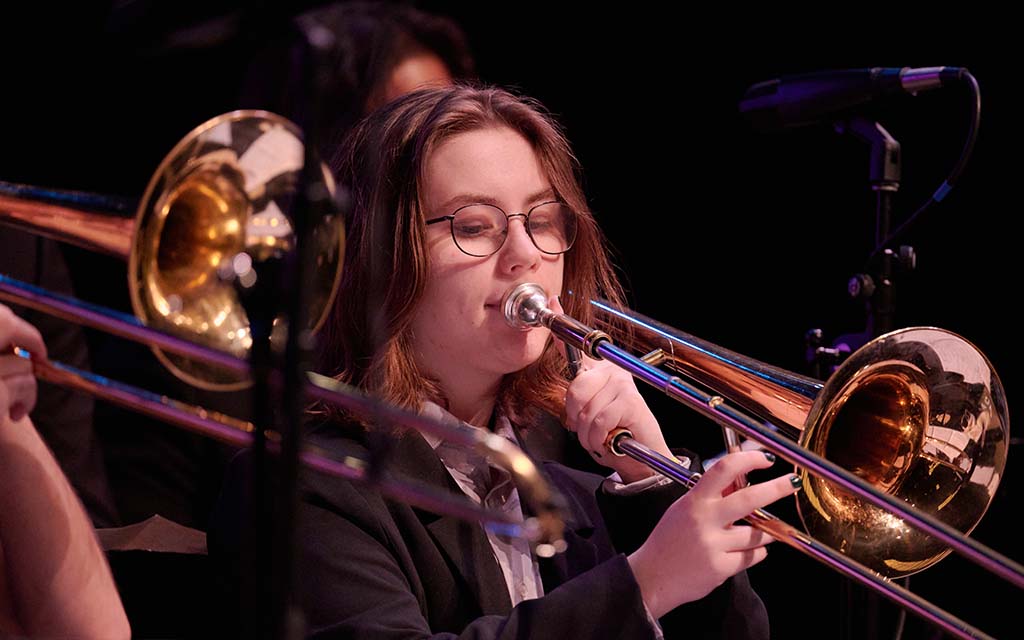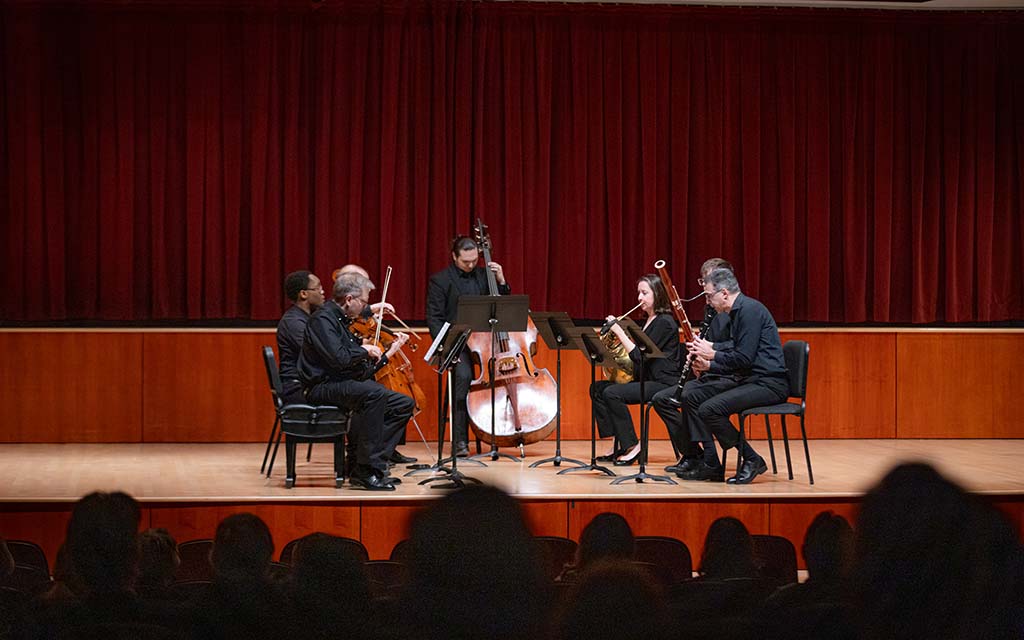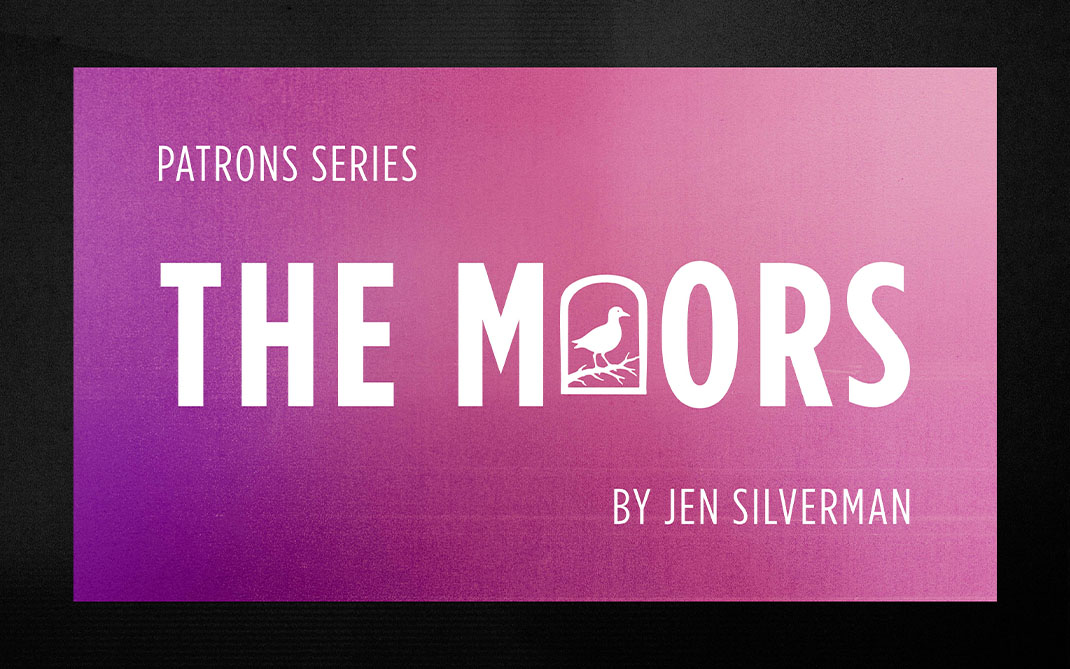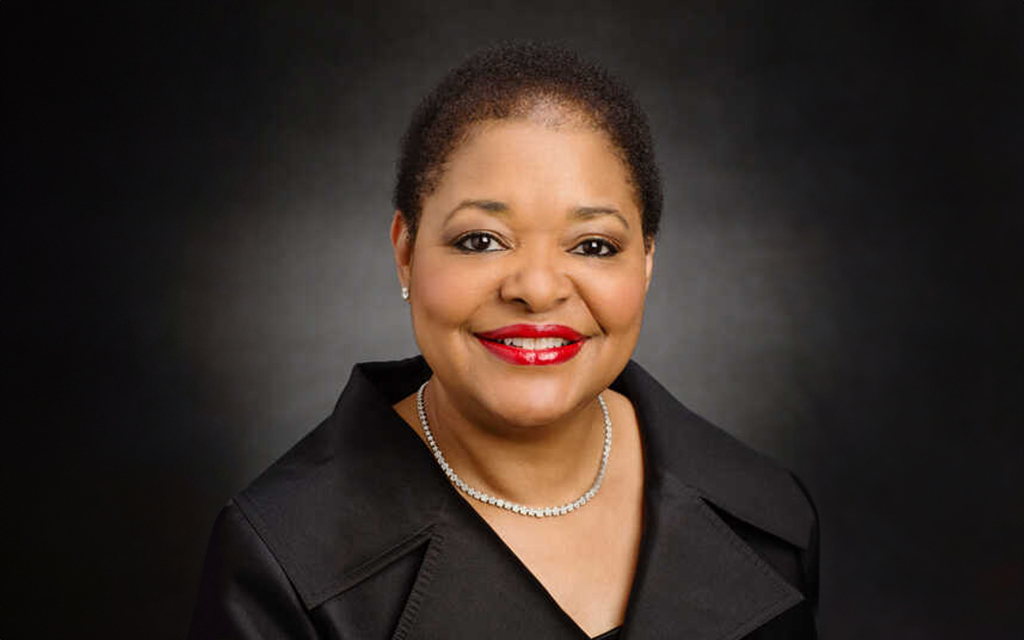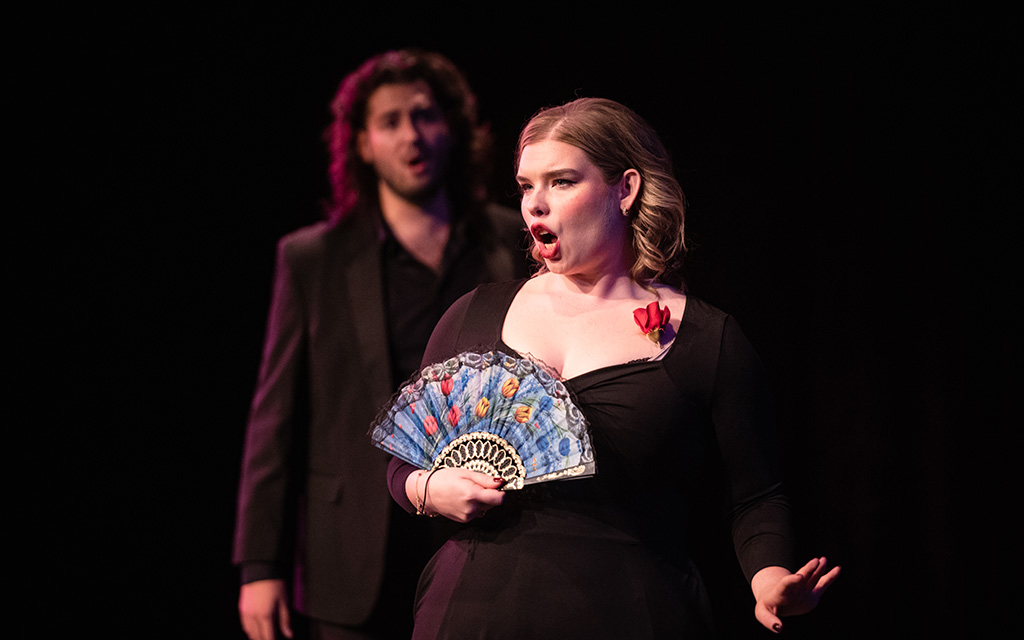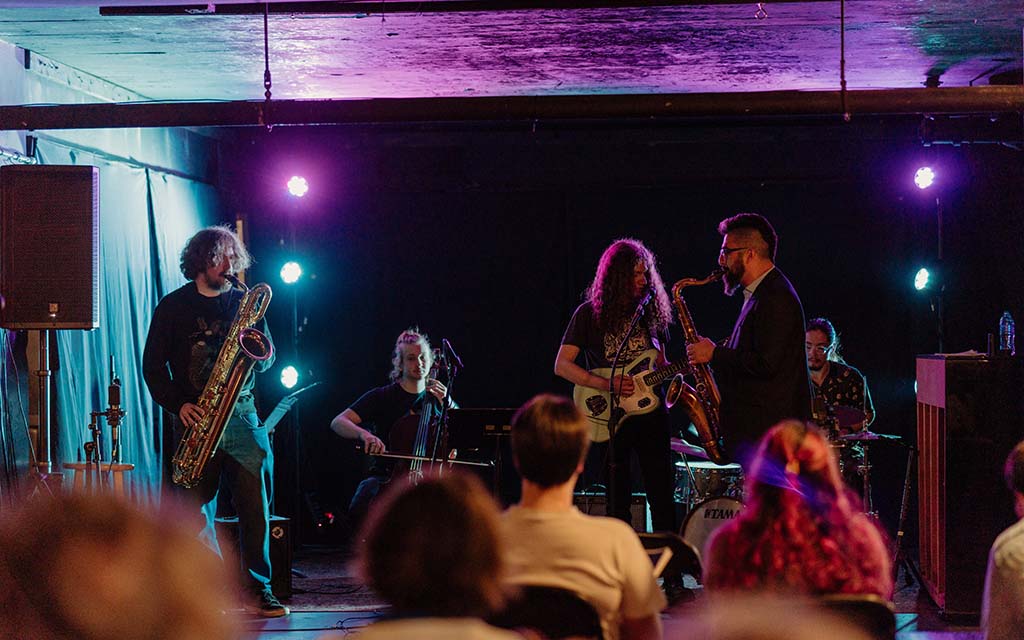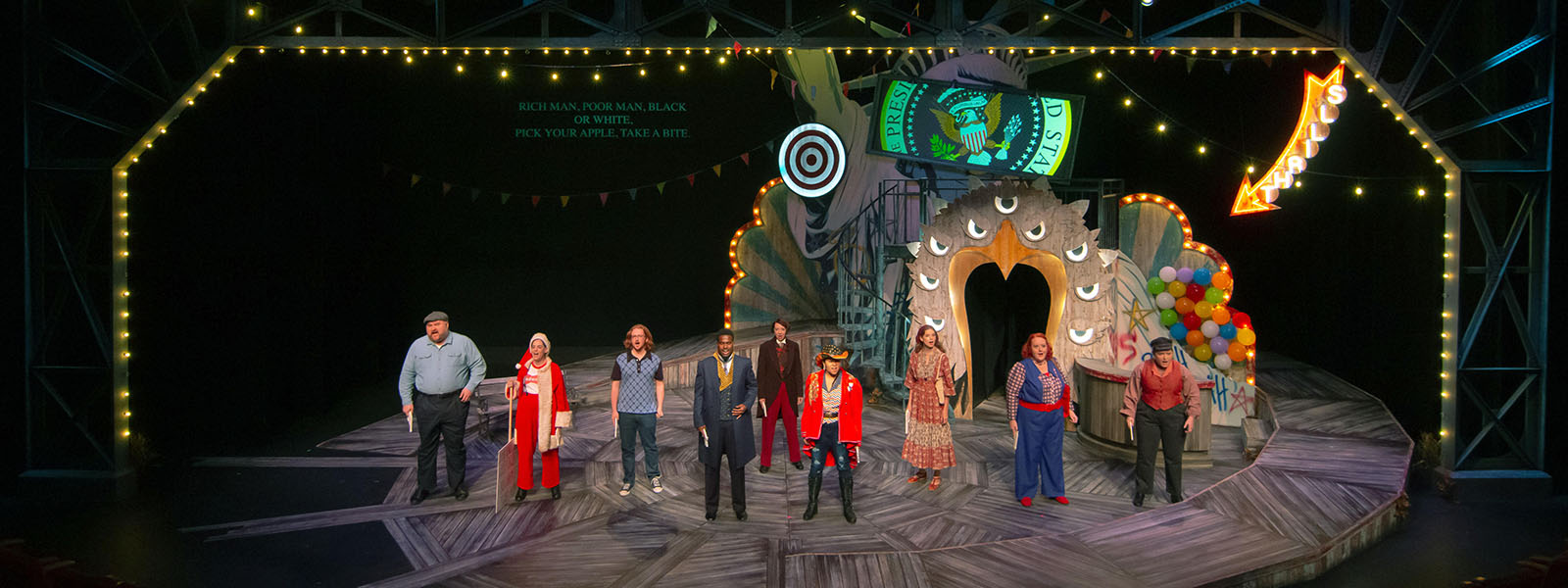Traveling through time: D&P alumnus Jayme Mellema embraces pop culture to inform his work
Four years ago, the world shut down as the COVID-19 pandemic emerged. While productions were halted and the theaters he worked in were shuttered, Jayme Mellema’s imagination ran wild. The outcome was "The Institute for Temporal Observation and Application," an in-person and virtual immersive theatrical experience that embraced popular time-travel tropes while staging a mystery to solve.
Mellema, a scene design alumnus (M.F.A. Design & Production ’07) and resident scenic designer at North Carolina State University, spent months developing the concept alongside his colleagues and a small group of students. Described by NC State Magazine as “part scavenger hunt, part escape room,” "The Institute" opened in late 2021, offering a new and inventive way to attract audiences to the University Theatre department.
What led him to this unique career moment, and what has helped to sustain his passion for the arts in the years following? Many things, he’ll tell you. Including his time as a Fighting Pickle.
Could we pretend just for a minute that this is the first time we've met?
Mellema, a self-proclaimed pop culture nerd, grew up in Washington state before heading across the country to attend college in Michigan. After securing a degree in communications and media studies with an emphasis in theater, he moved to Massachusetts to work as a painter for North Shore Music Theatre. There, he met Howard Jones — former director of scenic art and scene painting at UNCSA. Mellema was soon on the road to North Carolina, having enrolled in UNCSA’s graduate scene design program.
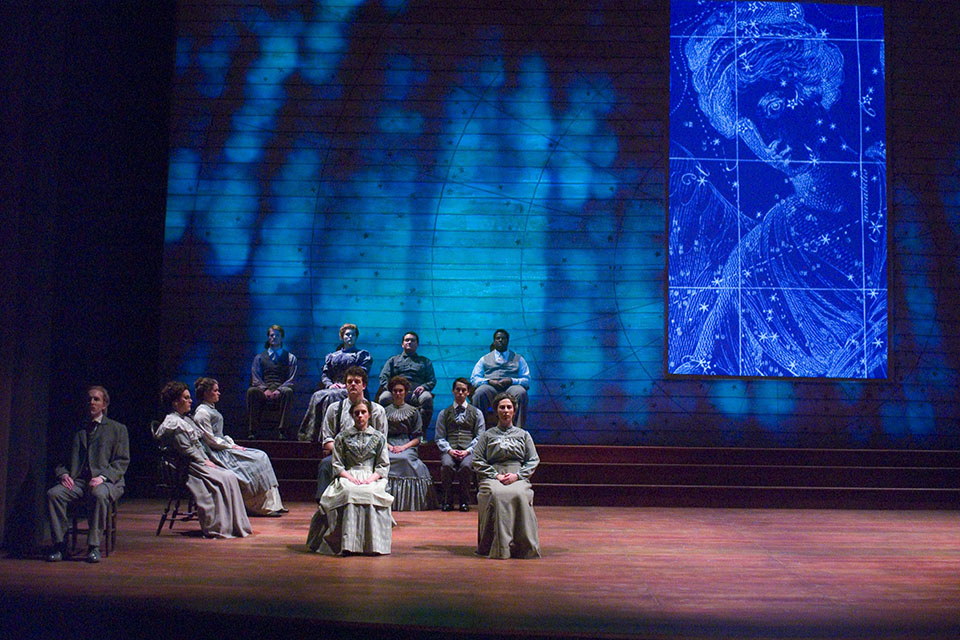
A.J. Fletcher's 2007 production of "Our Town" was designed by Mellema.
During his three years in the program, Mellema recalls flexing his creative muscles with a variety of projects. His mentor, Howard Jones, designed for the Summer Scenes performing arts series in Manteo, North Carolina, and took students with him each year. Mellema eagerly participated, becoming lead designer one summer. In Winston-Salem, a standout project was the A.J. Fletcher Opera Institute’s winter 2007 production of “Our Town.” Uniquely, this production relied on projection designed by Mellema to aid in storytelling — a detail highlighted in a review by Cultural Voice of North Carolina:
“The production was a joy to see… The use of projected period scenes and representations was very well thought out and effectively done,” Ken Hoover, Cultural Voice of North Carolina
Upon graduation, the hustle of living and working in New York City like many of his classmates wasn’t appealing to Mellema, who decided to maintain residence in North Carolina. He freelanced and completed a short stint at Duke University before landing in the University Theatre department at NC State, where he has now worked for more than a decade.
Through the looking glass
“Our program is really unique,” says Mellema of the University Theatre department. “There’s no theater major here, so our mission is to provide students with experience and community. It’s almost like a community theater on campus.” This model is rare to find on a college campus, and it certainly keeps Mellema busy.
The department produces five to six shows per year, including during summer sessions—Mellema designs each in addition to overseeing paint and props. Because the students working on and starring in the productions are all non-majors, Mellema enjoys the opportunity to focus on the whole student instead of narrowing to only their career ambitions.
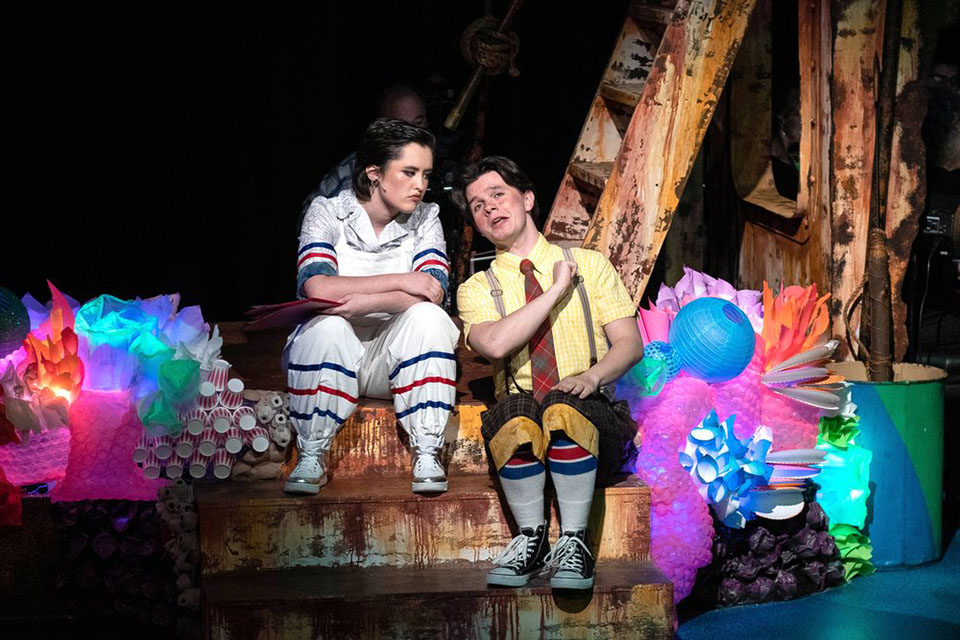
Mellema has designed numerous shows for the NC State University Theatre department including "The Spongebob Musical"
This type of student engagement was a primary driver in developing "The Institute." Through the immersive experience, the University Theatre department was able to engage with a wider audience on campus, connecting familiar areas of popular culture (gaming, for example) with elements of traditional theater.
Early on, students and staff participated in ideation sessions to help set the direction for the production. Together, they fleshed out the overarching story. “It was all hands on deck,” says Mellema. His lift was heavy, serving as scriptwriter, director and production designer.
"The Institute" launched in the fall, marketed only through scant flyers around campus
and word of mouth. A program landing page appeared on the NC State website, proclaiming
that “for those with a spirit of scientific adventure and discovery, an amazing journey
awaits.”
Participants were invited to register for orientation sessions, held at The Institute’s
recruiting office (an empty laboratory) on campus. Orientation included an interview
with "The Institute’s" interns and a welcome video from "The Institute’s" director.
Then, participants were swiftly immersed in the world of "The Institute" — receiving
story updates via email with directions to visit various locations across campus in
an attempt to discover the truth behind the mysterious (fictitious) disappearance
of "The Institute’s" student interns.
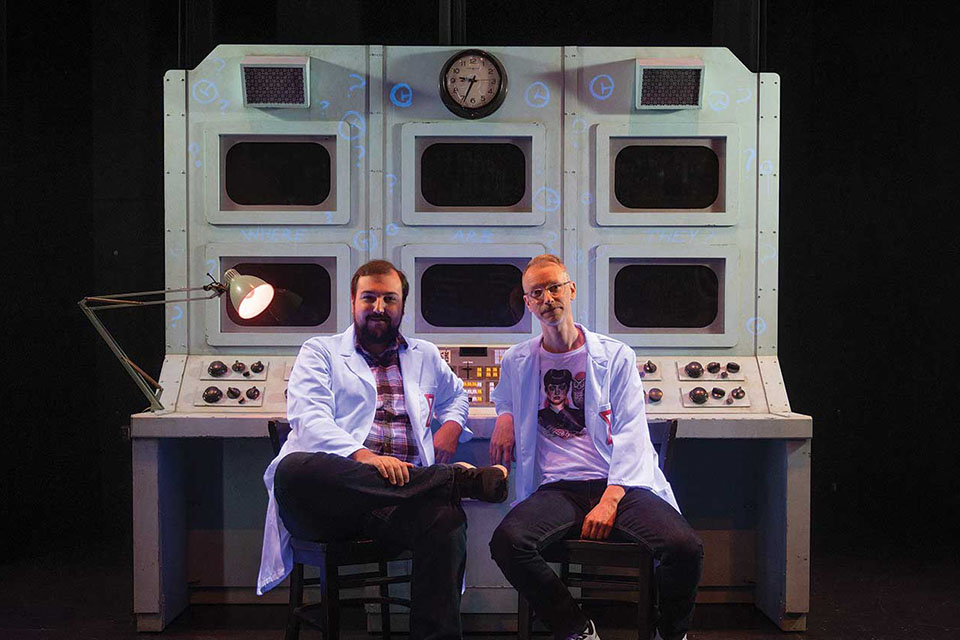
Jayme Mellema (right) with collaborator Mike White in front of the observatory's console, made of painted wood. / Photo: Marc Hall
Behind the scenes, Mellema and team worked diligently to coordinate with departments across campus to find spaces that could house various components of "The Institute’s" story. Once identified, they dressed the spaces with period-appropriate props and clues to lead participants further into the story.
At the end of the spring semester, "The Institute’s" mysteries had run their course. Participants gathered in a theater on campus for a grand finale: the ‘missing’ students were revealed, then actors and the creative team hosted a Q&A session. A post-event survey uncovered a powerful statement: 90% of participants had never before attended a University Theatre production.
I mark the hours, every one
"The Institute" now lives on through a website that details everything from story development, sample communications, and orientation steps to recaps of each of the eleven individual stories that participants experienced. The site also provides a testament to the creativity required to weather that moment in time — creativity that still fuels Mellema.
“It was a unique project for a unique time,” says Mellema, who acknowledges that budget and time would be challenging factors to overcome for future iterations. University Theatre productions are revenue-based and pay for themselves, and the original Institute project was free for participants. And with the regular production schedule back in full swing, Mellema can no longer dedicate his full attention to an additional immersive project.
He’s continued to channel his creativity in new ways. Last year, Mellema and two friends founded Witch Cat Creative, a collaborative and online gallery dedicated to pop culture fan art. The artist collaborative was accidental, according to Mellema — he met the friends in an online group before realizing they were all local to the Raleigh, North Carolina area.
“It’s fun to flex muscles in a different way, artistically,” says Mellema. “I’m used to rendering, but [with Witch Cat Creative] I can challenge myself in different mediums. I’ve been dabbling in gouache… I’m still feeling out what kind of work I want to make.”
Witch Cat Creative sells the artists’ items online and at local markets. Mellema enjoys the one-on-one nature of a market and hopes to do more of them in the future.
Great Scott!
Back on campus, Mellema finds plenty to be excited about in his job with University Theatre. This summer, they’ll host a unique pairing of plays that tell the same story from different perspectives. Written by the same playwright, “The Great Beyond” and “The Ghost of Splinter Cove” take place in the same house on the same evening — marrying the genres of family drama and supernatural.
And he knows there will be more unique experiences to come, not only in scenic design. “I consider myself a theater artist more than anything else,” says Mellema. “I’ve done a lot of different things. 'The Institute' gave me the opportunity to focus on writing and scriptwriting. Now, I’m in the process of working on a script for a play.”
For Mellema, one opportunity will continue to lead to another.
We’re all traveling through time together, every day of our lives.
Did you catch the Easter eggs in this story? Each subhead is a quote from a time-traveling piece of popular culture that inspired the story of "The Institute."
Get the best news, performance and alumni stories from UNCSA.
SUBSCRIBE TO OUR NEWSLETTERS(OPENS IN NEW TAB)(OPENS IN NEW TAB)(OPENS IN NEW TAB)(OPENS IN NEW TAB)(OPENS IN NEW TAB)(OPENS IN NEW TAB)(OPENS IN NEW TAB)(OPENS IN NEW TAB)(OPENS IN NEW TAB)(OPENS IN NEW TAB)(OPENS IN NEW TAB)(OPENS IN NEW TAB)(OPENS IN NEW TAB)
April 04, 2024
